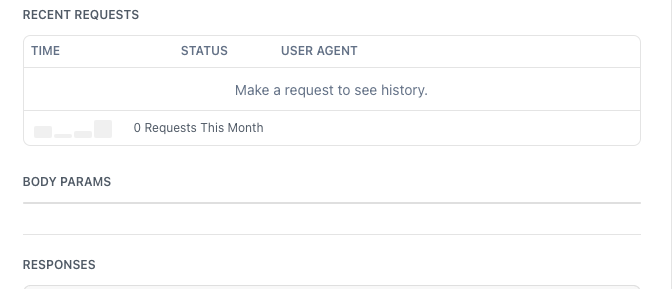Discussions
Bug in /discuss (React SSR Error)
There is a bug in the latest Readme release for the discussion forum.
Can I mark the best answer?
Is it possible to mark an answer as the best answer? Also, can we get a leaderboard based on answer questions correctly?
Can you add the ability to export APIs into PDF?
I noticed you can only export Guides, we have lots of internal users asking for PDF exports of the APIs and I have been using https://www.npmjs.com/package/apibake, can we get this into the product?
How do I edit the Langin Page width with custom HTML/CSS
The default css of the landing page width is narrow for what we want. What CSS hook allows us to overwrite the width of the Landing when using custom HTML?
URL encode query parameters in API Reference
My API allows query parameters that can contain special characters (for example, phone numbers with a + prefix). When users plug in the string with the special characters into the relevant query param in the API Reference and click "try it!" they expect for the special characters to be encoded correctly into the URL within the generated CURL. Is this a feature we can enable?
Adding a version prompts error: Error submitting form
Hi,
Missing body parameters

Feature Request: Line Numbers in Raw Mode
We're cleaning up our doc post-migration from Confluence and finding very old duplicates. It would sure save a lot of time if we could simple look at how many lines each duplicate has as an indicator of the best one to keep. Thanks for considering this.
Typing math in the docs
Do you support typing math, i.e. equations, in the docs?
404 on api reference section
Im having trouble making a readme file in readme.com where if click api-reference button no navbar takes me to a 404 not foud page, even if i have docs and pages created